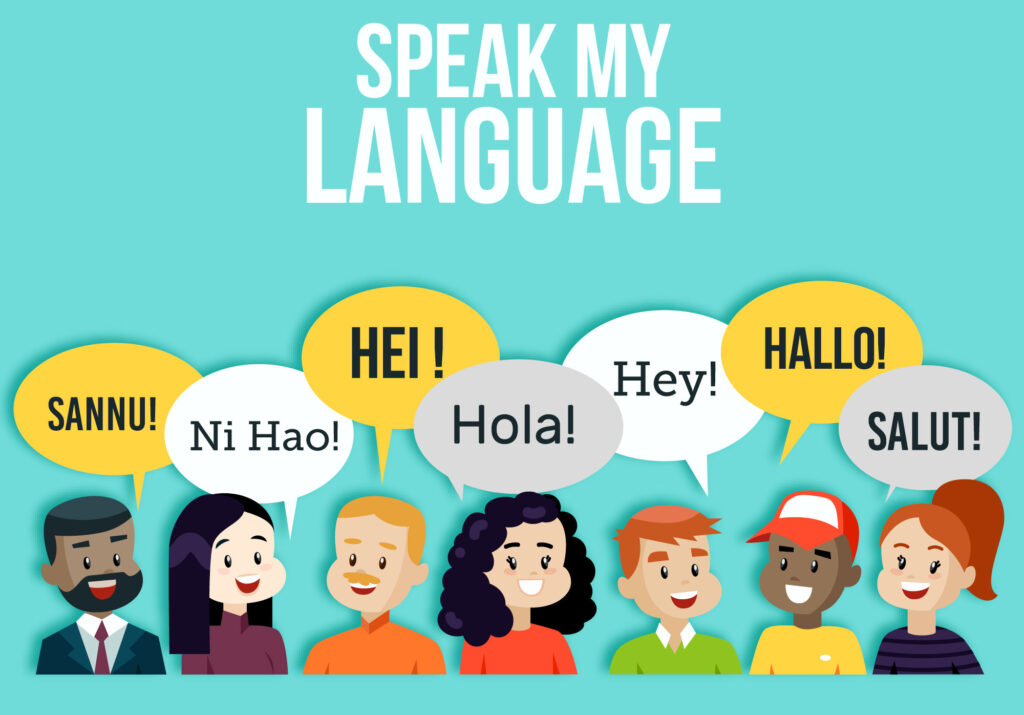What Are the Challenges In Learning a New Language

The digital age hands us resources in a flash. Almost any information we seek is at our fingertips—instant translations in any language, video channels devoted to language learning, voice-to-text translation apps.
Yet, many language learners struggle to achieve fluency. Perhaps because information is so easy to obtain, these technologies have made us expect that we should somehow be able to “hack” anything and become fluent in a new language in a short time.
Our brain is not a digital computation device and there is no simple “hack” for becoming fluent in a new language. Encore!!! Language Learning mobile app addresses the main difficulties in learning a foreign language.
2 Main Challenges to Learning a New Language
1. We need to use a new word or phrase 100 to 150 times to embed it into our long term memory.
This is so different from our devices such as smartphones or laptops where in seconds we can copy and paste phone numbers, texts, messages…
In fact, the difficulty of memorizing a new piece of information is essential for our survival. The need for repetition is a way for our brain to prioritize the importance of an item of information. An item that is repeatedly used tells our brain that this item is very important. If everything was sent into our long-term memory we would be overwhelmed with nonessential information.
Language learners and teachers are frustrated when a student cannot remember recently covered vocabulary. The choice of “repetitions” in Encore!!! is especially designed to allow one to hear and speak a word or phrase dozens of times till it becomes “usable”.
2. The rules of the new language are almost never the same as the rules we use in our known language.
While this poses a challenge, it’s also the reason language learning is so much fun. Its value goes beyond just being able to communicate. The process of learning these new ‘rules’ allows us to truly “think differently” in all other aspects of life.
When we are learning grammar rules of the new language, our brain rebels and questions why, why? Maybe we accept the need to learn new words, but we are not prepared to accept that the way the words change their form can be so different from our known language.

In every language, words change their form to fully convey the intention of the speaker. In general, language has to convey as accurately as possible some of these intentions:
i) Time precision: When did it happen? Is it happening now or will it happen in future? Is it really going to happen or is it just our hope that it happens? Did it happen recently or a long time ago?
ii) Location precision: Where exactly is the location? There, here, under, over there, etc.?
iii) Number precision: How many people are involved? One, two, more?
iv) Gender precision: Are men or women or ‘other’ involved or are they all involved together? Are inanimate objects involved and are they gendered?
v) Intention and mood precision: Is it a request or an order? Is it a hope, aspiration, or fantasy? Are there some hidden subtleties in the tone of the language?
vi) Body language: Are just words being used or is the body language also being used? In a real conversation, eyes, shoulders, gestures, posture…all sorts of movements are used.
vii) Power precision: Are the words used by a person of power or subservient person?
It is not surprising that each language has different ways of making communication precise and clear. Factors like culture, traditions, spiritual beliefs, economics, history, geography, weather and natural events influence how language is used.
5 Ways How Word-forms Can Change
1. Time Precision and Verb Conjugation: In most languages the time when something occurred is conveyed through a change verb. For most languages this part is often the most demanding. Romance languages like Spanish, Italian, French and Portuguese change the verb endings to indicate time periods and pronoun form and when one needs not use the pronouns at all.
2. Gender: Some languages indicate a gender for all nouns and the verb form is changed to convey gender. Examples are Romance languages, Hindi, Punjabi, Arabic, etc.
3. In some languages possessive pronouns are absorbed into nouns. This occurs in Arabic where the noun form changes and conveys if the object belongs to someone (to me, to you, to her, to them, to us, etc.).
4. In some languages, prepositions are absorbed into nouns. This is the case for ancient languages like Sanskrit and Latin. This feature means one has to memorize multiple forms of each noun but the language is then very concise and the information is independent of word order making it very attractive for poetry or forceful commandments.
5. In some languages the tone of the voice conveys different meanings to the similar words. The tones could be ones that convey “surprise” “anger”, “complaining” etc. Mandarin and other Chinese dialects use tones very effectively. To a lesser level Punjabi uses tones as well.
How Encore!!! Help Overcome Difficulty of Learning Languages
Encore!!! Language Learning differs from other language learning apps in that it recognizes both the importance of repetition and the importance of learning “rules of the game”. Encore!!! allows playlists to be made and the user can choose the number of repetitions for the items in the playlists. The items in the playlist can be chosen to help learn the “rules of the game”.

Most other apps may have some interesting cartoons and entertainment features and these features can be fun to see but they cannot overcome the basic limitations and abilities of the human brain and mind.
How to Use Contents in this folder
